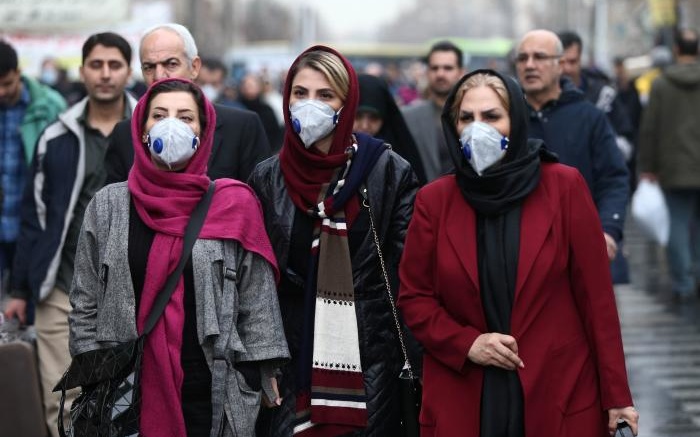Iranian women at the Grand Bazaar in Tehran, February 20, 2020 (Nazanin Tabatabaee/WANA)
Human Rights Watch has criticized Iran over forthcoming legislation restricting women’s rights on contraception and abortion.
The “Rejuvenation of the Population and Support of Family” bill, passed by Parliament on March 16, was approved by the Guardian Council on November 1. It is likely to be signed and published this month.
The bill bans sterilization and free distribution of contraceptives by public health providers, unless a pregnancy threatens a woman’s health. It also further limits access to abortion.
At present, an abortion may be performed in the first four months of pregnancy if three doctors agree that a pregnancy threatens a woman’s life or if the fetus has severe physical or mental disabilities. The legislation mandates the Health Ministry to establish a committee — with doctors, Islamic jurists, representatives of the judiciary, and MPs — to draft new regulations for abortion that could lead to further restrictions.
But the Supreme Leader, in a shift of policy, has been encouraging population growth over the past decade. Family planning and access to contraception have been set aside, while messages promote women’s primary role as mothers.
Ayatollah Khamenei’s injunction is reinforced by the legislation’s prohibition of cultural material against population policies. Iran state media must produce programs encouraging women to have children, and denouncing those who remain single, have fewer children, or have abortions. The Education and Science Ministries must generate supportive material, emphasizing the benefits of increased childbearing and the harm caused by contraceptives and abortion. Universities are to ensure curricula “consistent with women’s role in the Islamic-Iranian culture, including managing family and the house”.
The bill also provides increased employment benefits for pregnant women and those who breastfeed, and prohibits the firing or transfer of a working woman during pregnancy.
In June 2020, a senior Health Ministry official confirmed that Iran’s state hospitals and clinics were no longer performing vasectomies or giving out contraceptives.
Hamed Barakati said Iranian women were now having 1.7 children on average, below the 2.2 required to maintain the population. He said that if the trend was not changed, about a third of the country will be more than 60 years old by 2050.
“Whether we like it or not … we will become an ageing country,” Barakati said.


So, wait, the bill helps futher protect the rights of the unborn foetus AND it protects pregnant women from employment termination….but HRW’s Sepehri-Far claims it violates human rights???
Varharan,
Probably should read the entire article before tapping on the keyboard.
S.
Iran’s New Population Law Violates Women’s Rights, HRW Warns
https://www.rferl.org/a/iran-law-womens-rights/31554864.html